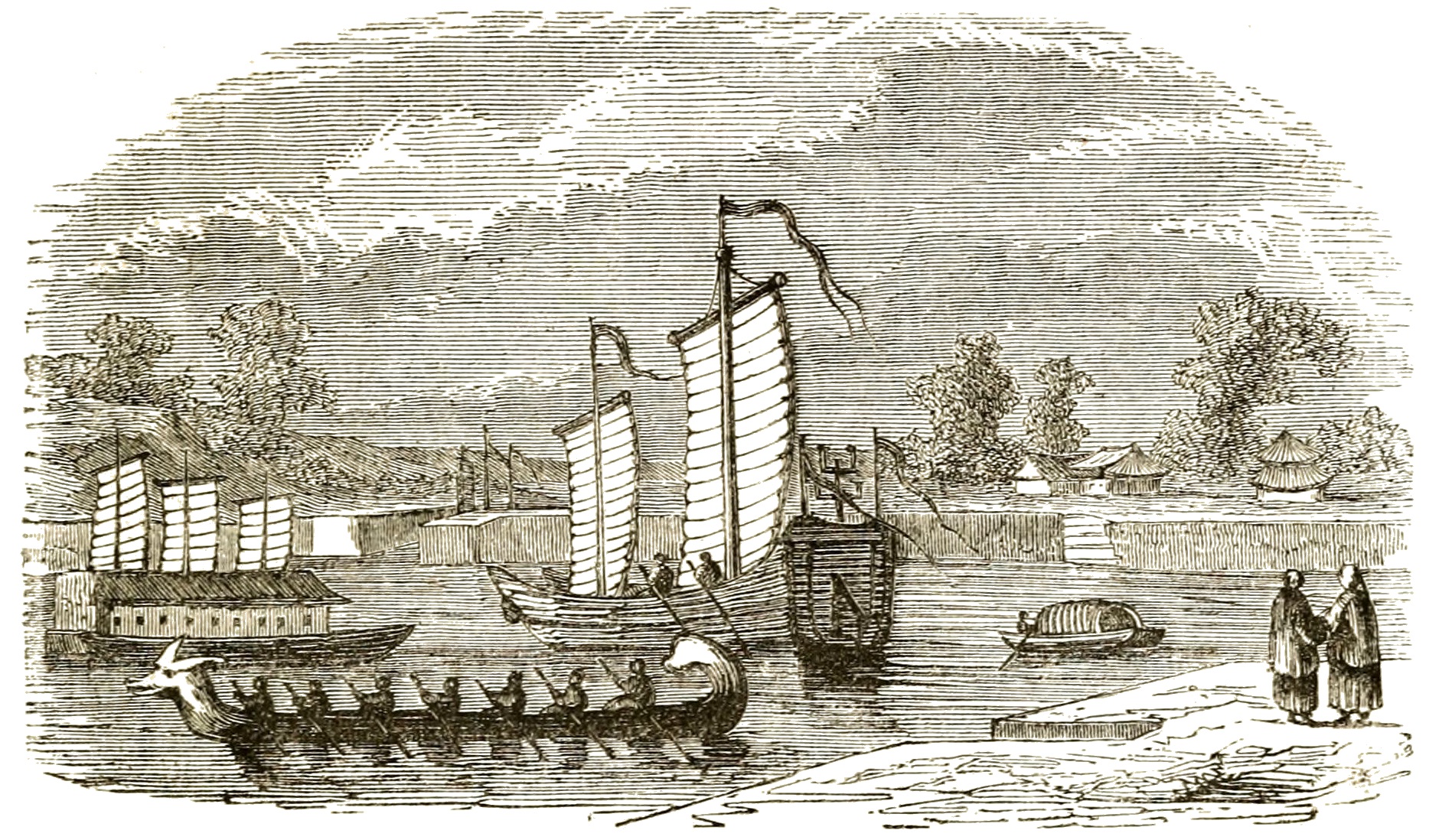On Monday evening, June 15, the solemn and impressive services connected with the designation to their field of labor, of our beloved young brethren, GEORGE PEARCY and SAMUEL C. CLOPTON, and their companions, took place in the Second [Baptist] Church.
… We had assembled to commemorate a new era in the history of missions. God, in his wise providence, having called Southern Baptists to occupy the vast empire of China as the inviting field of which to bestow their labors, we were about sending from our midst those who were to sow the seed of eternal life. …

The Corresponding Secretary, Rev. J.B. Taylor, delivered the following charge. …
The great empire of China is to be the field of your labors. You go out, not as ambassadors from an earthly government, but as ministers of the kingdom of Christ, not to treat with secular powers on great national questions, but to bear communications of divine love, beseeching the heathen to be reconciled to God. Yours is an office unequaled in dignity by any within the gift of man. It has relation to the soul and eternity. The responsibilities involved are of the most solemn character. …
As soon as you shall sufficiently acquire the language to make yourselves clearly understood, you are to engage in preaching the gospel. This is your appropriate work. For this you are distinctly sent forth; you go from this land not to engage in scientific research or pecuniary speculations, not to represent the best form of government or to exhibit the various stores of human knowledge—but to preach the gospel. You can, indeed, show to them the purest system of ethics the world has ever seen, but this would only still more embitter the cup of their misery were it not that you can point to the Lamb of God that taketh away the sin of the world. Hold up, then, the cross — know nothing among them but Jesus Christ, and him crucified. You may almost endlessly diversify your methods of teaching—your arguments and illustrations should be according to the character and circumstances of those you address, but in all places and at all times the love of God to a lost race is to be the great theme of your addresses. …
Here, you are surrounded by the sweet and hallowed associations of our holy religion. You listen to supplications from many kindred spirits, and praises from a thousand raptured tongues. There is, too, thrown around the enterprise in which you engage, something of the romantic which tends to animate the soul. But presently, all will be changed—you will brave the dangers of the deep, and soon be found in the midst of idolators. Beyond your own little circle you will not hear mention the revered names of the Great Jehovah and his Son, Jesus Christ, but be familiar only with gods made by human hands; gods that can neither see, nor hear, nor save. You will sit down to acquire, by slow degrees, an unknown language—and then, when you begin to publish the salvation of the gospel, they may not receive your message — you may be treated with scorn by some and with opposition by others. Under such circumstances you will be in danger of yielding to discouragement. But you need not despond. By whose command do you go forth? Is it not the glorified Redeemer? On whose promise do you rely for support? Is it not the immutable God? He who sends you to preach the gospel, has said, “lo, I am with you always, even to the end of the world.’’ …
REV. J. LEWIS SHUCK, of the China Mission, extended the right hand of fellowship to the missionaries, welcoming them amongst the number of those who should labor in that important field. He regretted that he could not accompany them. …
Our Chinese brother, YONG SEEN SANG, came forward and addressed the brethren who are destined to preach the gospel to his benighted countrymen. He was followed by brethren PEARCY and CLOPTON. Their remarks were brief but pertinent. They concluded with asking that christians at home would pray God to bestow on them his sustaining grace. The wives of the missionaries were then affectionately addressed by brother JETER; and the scene closed by singing the hymn “Hail, sweetest, dearest tie that binds;” while one after another of the congregation, amid floods of tears, bid a long adieu to the brethren and sisters whom they never expected to meet again on earth.
Excerpted from “Designation of Missionaries of the Convention,” Southern Baptist Missionary Journal, July 1846, p. 41-46.

